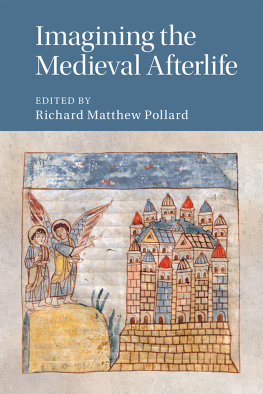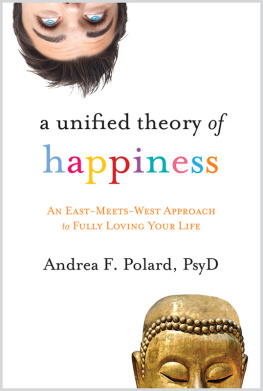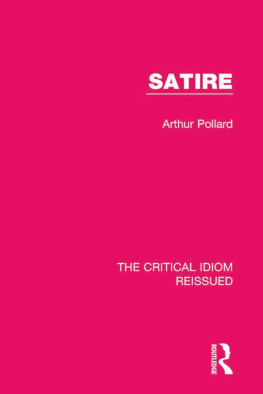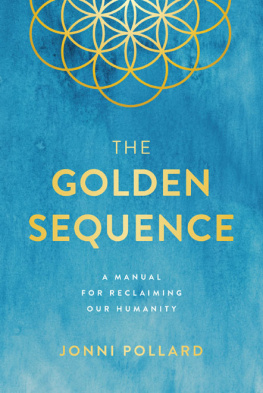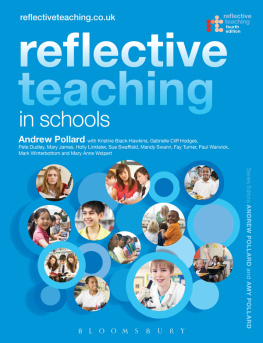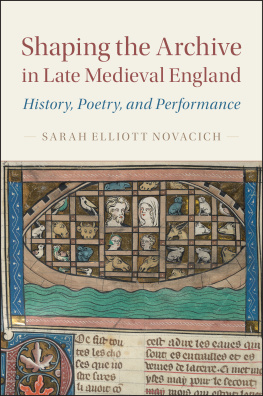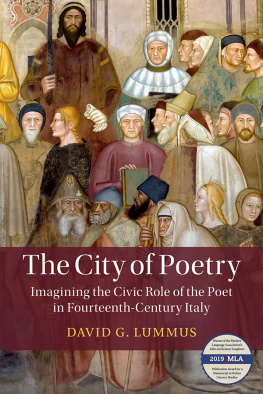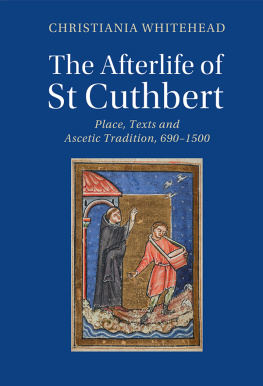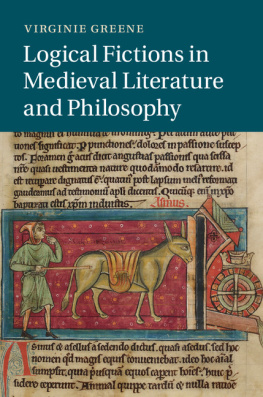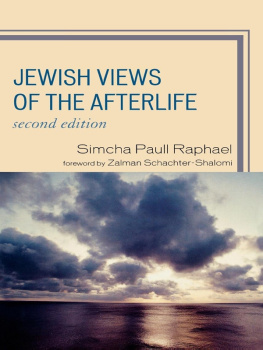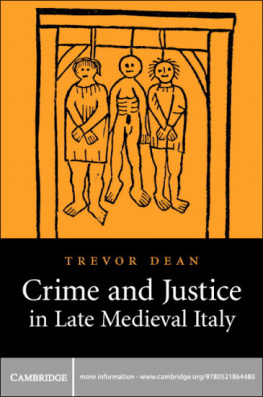Pollard - Cambridge Studies in Medieval Literature: Imagining the Medieval Afterlife
Here you can read online Pollard - Cambridge Studies in Medieval Literature: Imagining the Medieval Afterlife full text of the book (entire story) in english for free. Download pdf and epub, get meaning, cover and reviews about this ebook. year: 2020, publisher: Cambridge University Press, genre: Religion. Description of the work, (preface) as well as reviews are available. Best literature library LitArk.com created for fans of good reading and offers a wide selection of genres:
Romance novel
Science fiction
Adventure
Detective
Science
History
Home and family
Prose
Art
Politics
Computer
Non-fiction
Religion
Business
Children
Humor
Choose a favorite category and find really read worthwhile books. Enjoy immersion in the world of imagination, feel the emotions of the characters or learn something new for yourself, make an fascinating discovery.
- Book:Cambridge Studies in Medieval Literature: Imagining the Medieval Afterlife
- Author:
- Publisher:Cambridge University Press
- Genre:
- Year:2020
- Rating:5 / 5
- Favourites:Add to favourites
- Your mark:
- 100
- 1
- 2
- 3
- 4
- 5
Cambridge Studies in Medieval Literature: Imagining the Medieval Afterlife: summary, description and annotation
We offer to read an annotation, description, summary or preface (depends on what the author of the book "Cambridge Studies in Medieval Literature: Imagining the Medieval Afterlife" wrote himself). If you haven't found the necessary information about the book — write in the comments, we will try to find it.
Cambridge Studies in Medieval Literature: Imagining the Medieval Afterlife — read online for free the complete book (whole text) full work
Below is the text of the book, divided by pages. System saving the place of the last page read, allows you to conveniently read the book "Cambridge Studies in Medieval Literature: Imagining the Medieval Afterlife" online for free, without having to search again every time where you left off. Put a bookmark, and you can go to the page where you finished reading at any time.
Font size:
Interval:
Bookmark:

Imagining the Medieval Afterlife
Where do we go after we die? This book traces how the European Middle Ages offered distinctive answers to this universal question, evolving from antiquity through to the sixteenth century, and reflecting a variety of problems and developments. Focusing on texts describing visions of the afterlife, alongside art and theology, this volume explores heaven, hell, and purgatory as they were imagined across Europe, as well as by noted authors including Gregory the Great and Dante. A cross-disciplinary team of contributors including historians, literary scholars, classicists, art historians, and theologians offer not only a fascinating sketch of both medieval perceptions and the wide scholarship on this question: they also provide a much-needed new perspective. Where the twelfth century was once the high point of the medieval afterlife, the chapters here show that the afterlives of the early and later Middle Ages were far more important and imaginative than we once thought.
Richard Matthew Pollard is Associate Professor in the History Department at the Universit du Qubec Montral. He studied at Toronto and then Cambridge, and his doctoral thesis won the 2010 The Leonard Boyle Dissertation Prize. Aside from numerous articles and chapters, he has completed the first new edition of the Latin version of Josephus Antiquities since 1524 and is preparing a new critical edition of the Visio Wettini.
Alastair Minnis, Yale University
Daniel Wakelin, University of Oxford
Anthony Bale, Birkbeck, University of London
Zygmunt G. Baraski, University of Cambridge
Christopher C. Baswell, Barnard College and Columbia University
Mary Carruthers, New York University
Rita Copeland, University of Pennsylvania
Roberta Frank, Yale University
Marissa Galvez, Stanford University
Alastair Minnis, Yale University
Jocelyn Wogan-Browne, Fordham University
This series of critical books seeks to cover the whole area of literature written in the major medieval languages the main European vernaculars, and medieval Latin and Greek during the period c.11001500. Its chief aim is to publish and stimulate fresh scholarship and criticism on medieval literature, special emphasis being placed on understanding major works of poetry, prose, and drama in relation to the contemporary culture and learning which fostered them.
A complete list of titles in the series can be found at the
Imagining the Medieval Afterlife
Edited by
Richard Matthew Pollard
Universit du Qubec Montral


University Printing House, Cambridge cb 2 8bs , United Kingdom
One Liberty Plaza, 20th Floor, New York, ny 10006, USA
477 Williamstown Road, Port Melbourne, vic 3207, Australia
314321, 3rd Floor, Plot 3, Splendor Forum, Jasola District Centre, New Delhi 110025, India
79 Anson Road, #0604/06, Singapore 079906
Cambridge University Press is part of the University of Cambridge.
It furthers the Universitys mission by disseminating knowledge in the pursuit of education, learning, and research at the highest international levels of excellence.
www.cambridge.org
Information on this title: www.cambridge.org/9781107177918
DOI: 10.1017/9781316823255
Cambridge University Press 2020
This publication is in copyright. Subject to statutory exception and to the provisions of relevant collective licensing agreements, no reproduction of any part may take place without the written permission of Cambridge University Press.
First published 2020
A catalogue record for this publication is available from the British Library.
Library of Congress Cataloging-in-Publication Data
Names : Pollard, Richard Matthew, editor.
Title : Imagining the medieval afterlife / edited by Richard Matthew Pollard.
Description : Cambridge ; New York, NY : Cambridge University Press, 2020. | Series: Cambridge studies in medieval literature | Includes bibliographical references and index.
Identifiers: LCCN 2020021939 (print) | LCCN 2020021940 (ebook) | ISBN 9781107177918 (hardback) | ISBN 9781316630785 (paperback) | ISBN 9781316823255 (epub)
Subjects: LCSH : Literature, MedievalHistory and criticism. | Future life in literature. | Future life in art. | Future lifeHistory of doctrinesMiddle Ages, 600-1500.
Classification: LCC PN 682. F 88 I 43 2020 (print) | LCC PN 682. F 88 (ebook) | DDC 809/.93358207dc23
LC record available at https://lccn.loc.gov/2020021939
LC ebook record available at https://lccn.loc.gov/2020021940
ISBN 978-1-107-17791-8 Hardback
Cambridge University Press has no responsibility for the persistence or accuracy of URLs for external or third-party internet websites referred to in this publication and does not guarantee that any content on such websites is, or will remain, accurate or appropriate.
Richard Matthew Pollard
Susanna Braund and Emma Hilliard
Yitzhak Hen
Richard Matthew Pollard
Elizabeth Boyle
Gernot R. Wieland
Carl Watkins
Gwenfair Walters Adams
Isabel Moreira
Helen Foxhall Forbes
Henry Ansgar Kelly
Adam R. Stead
Jesse Keskiaho
Eileen Gardiner
Debra L. Stoudt
George Corbett
Gwenfair Walters Adams is Associate Professor of Church History at GordonConwell Theological Seminary.
Elizabeth Boyle is head of the Department of Early Irish at Maynooth University.
Susanna Braund is Professor of Latin Poetry and Its Reception and a Canada Research Chair in the Department of Classical, Near Eastern, and Religious Studies at the University of British Columbia, Vancouver.
George Corbett is Senior Lecturer in Theology and the Arts, in the School of Divinity at the University of St Andrews.
Helen Foxhall Forbes is Associate Professor of Early Medieval History at Durham University.
Eileen Gardiner is the publisher of Italica Press and Honorary Research Fellow at the Centre for Medieval Studies, University of Bristol.
Font size:
Interval:
Bookmark:
Similar books «Cambridge Studies in Medieval Literature: Imagining the Medieval Afterlife»
Look at similar books to Cambridge Studies in Medieval Literature: Imagining the Medieval Afterlife. We have selected literature similar in name and meaning in the hope of providing readers with more options to find new, interesting, not yet read works.
Discussion, reviews of the book Cambridge Studies in Medieval Literature: Imagining the Medieval Afterlife and just readers' own opinions. Leave your comments, write what you think about the work, its meaning or the main characters. Specify what exactly you liked and what you didn't like, and why you think so.

